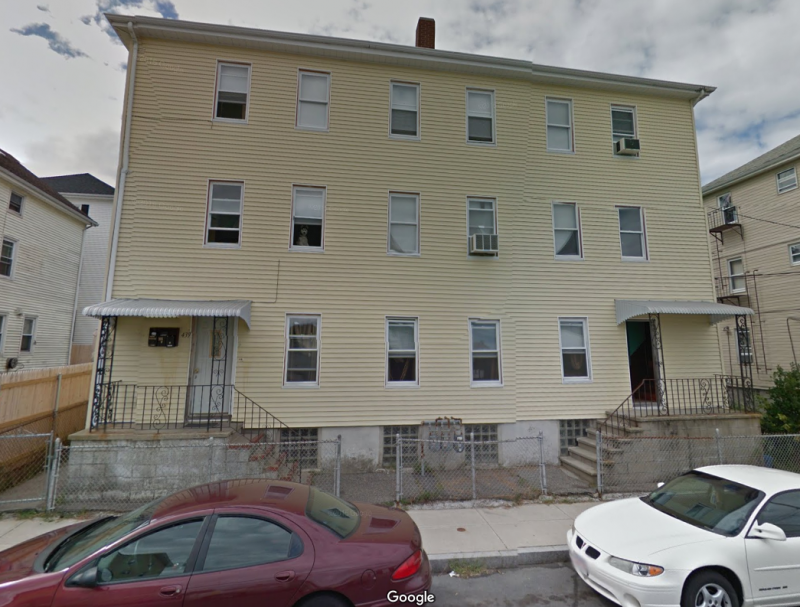latest
Landlords unlikely to prevail in Massachusetts eviction case

By Matt Murphy
A federal court judge said Monday that three landlords who have sued the state over its moratorium on evictions during the COVID-19 pandemic are unlikely to prevail on their claim that the law unconstitutionally infringes on their lease agreements with tenants.
The preliminary finding by U.S. District Court Judge Mark Wolf came at the end of a long day of arguments in a case brought by landlords seeking to overturn the four-month-old law on multiple constitutional grounds in both state and federal court.
Those landlords, led by nurse and Randolph property owner Marie Baptiste, argue that the moratorium on evictions breaches the contracts clause of the Constitution and violates their right to petition the judiciary, their First Amendment right to free speech, and their right to compensation for unlawful land taking under the Fifth Amendment.
Wolf said that in cases like this the Legislature is afforded broad “deference,” as long as its actions can be defended as “reasonable and appropriate means” to accomplish a significant public purpose.
In this case, the Legislature passed and Gov. Charlie Baker signed a moratorium on evictions and foreclosure in April in an attempt to limit housing turnover and court crowding to control the spread of COVID-19. The moratorium was put in place as forced business shutdowns put tens of thousands of people out of work.
Assistant Attorney General Jennifer Greaney pointed to public statements made by Reps. Michael Connolly, a Cambridge Democrat, and Kevin Honan, the House chair of the Housing Committee, about the need to help people shelter during the pandemic as a motivation behind the law. She also pointed out that the law did not remove the requirement of paying rent.
The plaintiffs lawyer Richard Vetstein said he could not dispute the severity of the pandemic, but said the rationale behind the law was a “moving target,” and argued that landlords had limited options to try to collect unpaid rent the longer the pandemic carries on.
“There’s a point where delay becomes denial,” Vetstein said.
Vetstein referred to the Massachusetts law as the “nuclear option,” pointing to states like New York and Connecticut where moratoriums were also put in place, but landlords were allowed to use tenant security deposits, or issue notices to quit.
“If you took our moratorium and cut out every single part of it, but left one part in, to mandate the housing courts do not issue move-out orders, if you did that, that would be OK, and that would achieve everything you’re trying to do,” Vetstein said.
Wolf told attorneys on both sides of the case that he was likely to rule that challenge under the contract clause of the U.S. Constitution was unlikely to succeed, but he still has not yet decided other challenges to the moratorium on the grounds of free speech, due process and unlawful taking of property.
Arguments on those grounds are likely to take place next week, along with another motion from the attorney general to dismiss the case.
“Based on the issues I’ve addressed so far the plaintiffs are not reasonably likely to prevail on the contract law question, but that may change,” Wolf said, before he recessed the proceeding for the day. He intends to resume the hearing on Wednesday morning, when he will issue a final ruling on the contract clause claim, which is one of five the landlords have made to challenge the eviction moratorium.
The virtual day in court began with arguments over whether Wolf should abstain from the case and let Suffolk Superior Court Judge Paul Wilson decide all the legal questions raised by landlords with regard to the eviction moratorium under both the state and federal Constitutions.
Wolf denied the attorney general’s request to stay the federal lawsuit, concluding that the time sensitivity of the case and nature of the challenges warrant a decision in federal court.
Vetstein initially filed the challenge to the eviction moratorium on behalf of several landlords in late May with the Supreme Judicial Court. That lawsuit included claims of unconstitutionality under both the state and U.S. Constitutions.
The SJC, however, remanded the case to the Superior Court, and Vetstein removed the federal claims from the case and filed a new lawsuit in U.S. District Court, with only one overlapping plaintiff. Judge Wilson heard arguments on July 30 on a motion for preliminary injunction in the state case, but has still not made a decision, which could block enforcement of the moratorium if the plaintiffs prevail.
“We still don’t have a court saying the Act is constitutional. That’s all we’re looking for,” Vetstein said.
Wolf said he could order the plaintiffs to amend their Superior Court complaint to add the federal claims back to the lawsuit, but concluded the federal court is now the “only efficient opportunity” to have the federal claims decided.
“This is a case where the present lack of a alternative forum and the significant risk of irreparable harm to the plaintiffs’ First Amendment rights makes it appropriate for this court to retain jurisdiction,” Wolf said.
Wolf further said that his decision to retain jurisdiction in the case would not interfere with the case proceeding in Suffolk Superior Court because the claims being made were different in each case. He rejected the state’s argument that if he found in favor of the plaintiffs he would be forcing the Housing Court to amend is current pandemic operations to begin hearing eviction cases.
“If I declare the moratorium unconstitutional, it would not reduce the power of the state court to control its own proceedings, including staying eviction proceedings for example,” Wolf said.
Wolf’s decision to retain jurisdiction in the case came after Assistant Attorney General Pierce Cray accused plaintiffs of “venue shopping.”
“A major theme in abstention law is to discourage reactive litigation, forum shopping, and it should not be countenanced here, especially when it’s so explicit,” Cray said.
Vetstein said he had no choice but to be reactive after the SJC refused to hear the case, and Wolf pointed out that the federal case was filed in July before any state judge had issued a decision on the merits of the original lawsuit, and before oral arguments in Suffolk Superior Court.
The moratorium on evictions and foreclosures has been extended by Baker until Oct. 17 in an effort to allow people impacted by the COVID-19 pandemic to stay in their homes to fight the spread of the virus, and to help people economically impacted by virus control measures to recover.
The governor retains the option of extending the moratorium longer, and legislation has been filed by Rep. Connolly and others to extend the moratorium 12 months beyond the end of the COVID-19 public health emergency, whenever that happens.






You must be logged in to post a comment Login